Search Results for: GENE THERAPY
Skip to resultsCan’t find what you’re looking for? Visit our FAQ page.
1,057 results for: GENE THERAPY
-
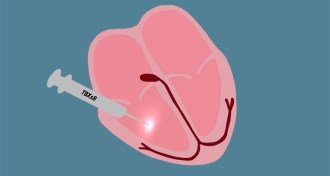 Health & Medicine
Health & MedicinePig heartbeats adjusted with gene therapy
A biological pacemaker created with gene therapy could may one day help people who cannot have implanted electrical pacemakers.
-
 Genetics
GeneticsDebate rages over mouse studies’ relevance to humans
Last year, researchers said rodents are not good mimics of human inflammation; a new study says the reverse.
-
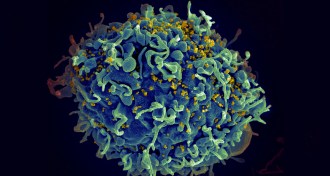 Life
LifeHIV hides in growth-promoting genes
The discovery that HIV can trigger infected cells to divide means scientists may need to rethink strategies for treating the virus that causes AIDS.
-
 Life
LifeAutoimmune diseases stopped in mice
Reprogramming immune cells may offer a way to treat autoimmune diseases without harming the body’s ability to fight infections.
-
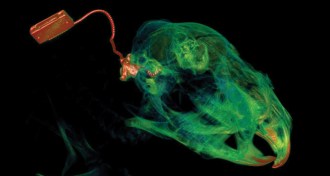 Genetics
GeneticsGene therapy with electrical pulses spurs nerve growth
Deaf guinea pigs' hearing improves with electrical pulses from a hearing implant are combined with gene therapy, a new study shows.
-
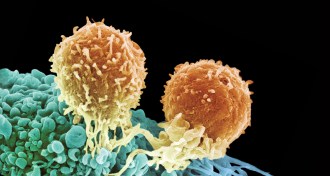 Life
LifeDesigner T cells emerge as weapons against disease
Decades of attempts to boost the immune system’s ability to fight disease are finally starting to pay off. Reprogrammed T cells serve as new weapons against cancer and autoimmune diseases.
By Susan Gaidos -
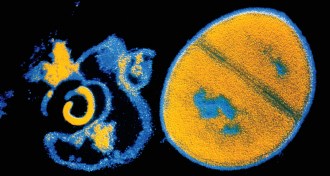 Health & Medicine
Health & MedicineUnsolved drugs
Long thought to launch precision attacks against bacteria, antibiotics may also cause lethal collateral damage, according to a controversial theory. Exploring how these compounds kill may reveal new ways to fight antibiotic resistance.
By Beth Mole -
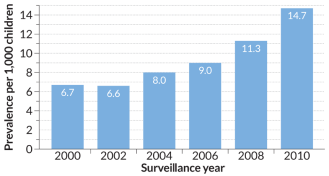 Health & Medicine
Health & MedicineAutism spike may reflect better diagnoses, and that’s a good thing
As doctors get better at spotting autism spectrum disorders, kids may get help earlier — and the numbers of diagnoses will increase.
-
 Life
LifeCommon lung infection suffocates with single protein
A Respiratory Syncytial Virus, or RSV, protein creates clumps of dead, bloblike lung cells.
By Beth Mole -

Gene influences density of the skeleton
The mutated gene responsible for a rare bone disorder has been found.
By John Travis -
 Health & Medicine
Health & MedicineEnzyme fighter works as well as tamoxifen
The drug anastrozole generally works as well in fighting advanced breast cancer as better-known tamoxifen, and even surpasses it in certain patients.
By Nathan Seppa -
 Health & Medicine
Health & MedicineGene Therapy for Sickle-Cell Disease?
By adding a useful gene to offset the effects of a faulty one, scientists have devised a gene therapy that prevents sickle-cell anemia in mice.
By Nathan Seppa